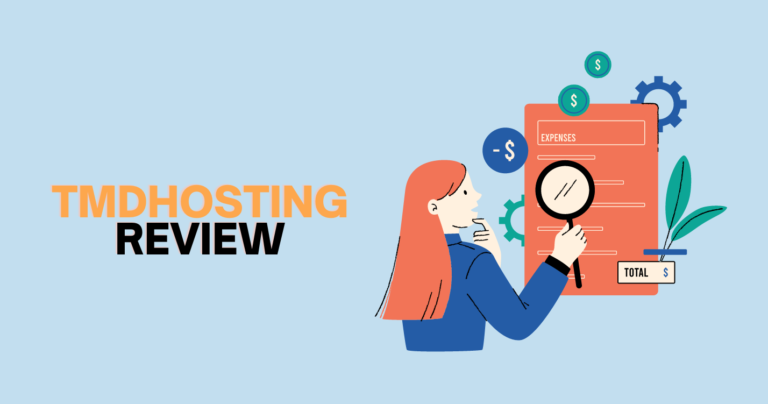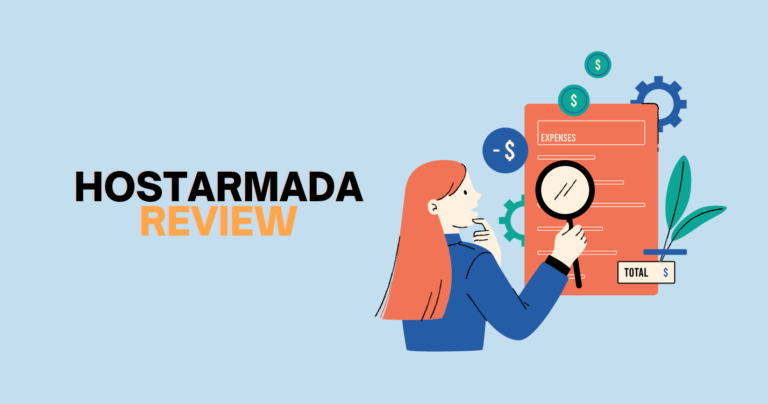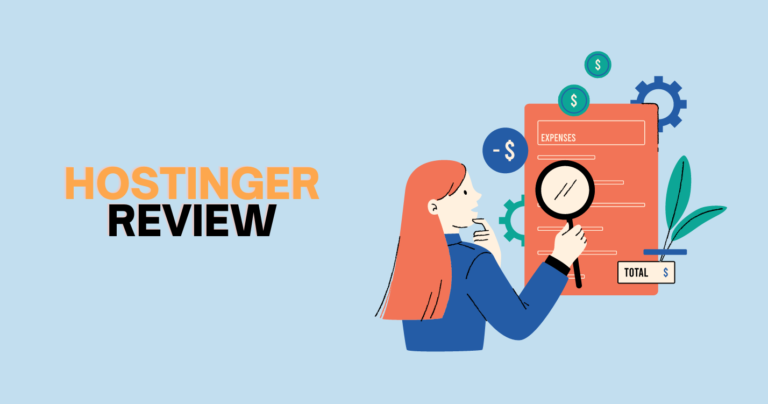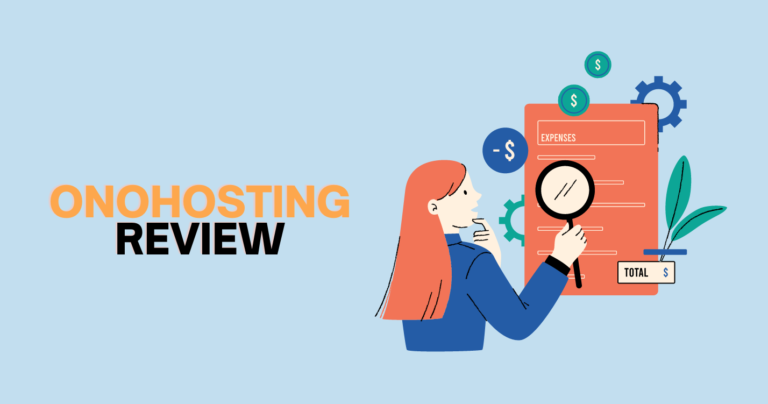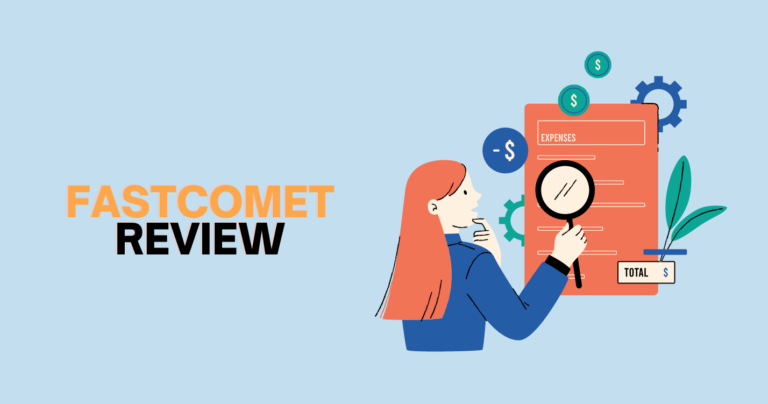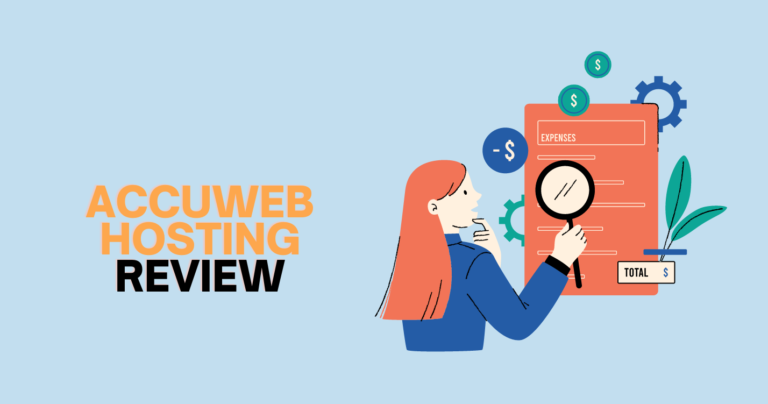DigitalOcean Review
“Quick Overview” DigitalOcean, a prominent cloud hosting provider, offers a range of solutions tailored to meet the needs of businesses seeking scalable and developer-friendly hosting services.
In this blog, we will delve into the world of DigitalOcean, exploring its history, cloud hosting services, key features, customer reviews, pricing considerations, and more. By understanding DigitalOcean’s offerings, businesses can make informed decisions when it comes to selecting a reliable and efficient cloud hosting solution that empowers their digital ventures.
History and Background of DigitalOcean
DigitalOcean was founded in 2011 by Ben Uretsky, Moisey Uretsky, Mitch Wainer, Jeff Carr, and Alec Hartman. The idea behind DigitalOcean was to create a cloud hosting platform that would simplify the process of deploying and scaling applications for developers and businesses. The founders recognized the need for a user-friendly and affordable cloud infrastructure solution to empower developers and startups.
Milestones and Growth of the Company
Since its inception, DigitalOcean has experienced significant growth and achieved several milestones. In 2012, they launched their first data center in New York City, providing developers with a reliable and scalable infrastructure. In the following years, DigitalOcean expanded its operations, opening data centers in locations worldwide, including San Francisco, Amsterdam, Singapore, London, and more.
DigitalOcean gained popularity within the developer community due to its straightforward user interface, affordable pricing, and robust developer tools. They focused on creating a developer-centric ecosystem and providing resources, tutorials, and an active community to support developers in their projects.
Expansion of DigitalOcean’s Services and Data Centers
As DigitalOcean grew, they expanded their services beyond traditional virtual private servers (Droplets) to include additional offerings. They introduced Kubernetes as a Service (Kubernetes-based container orchestration), Managed Databases (managed database solutions), and Object Storage (scalable storage for unstructured data).
To better serve their global customer base and provide low-latency services, DigitalOcean continued to expand their data center footprint. They established data centers in various regions, ensuring customers could deploy their applications closer to their target audience and comply with data sovereignty requirements.
The continuous expansion of services and data centers demonstrates DigitalOcean’s commitment to meeting the evolving needs of developers and businesses. Their focus on simplicity, affordability, and developer-centric solutions has positioned them as a significant player in the cloud hosting industry.
Cloud Hosting Services Offered by DigitalOcean
DigitalOcean’s Cloud Hosting Solutions
-
- Droplets (Virtual Private Servers): DigitalOcean’s Droplets provide virtual private servers (VPS) that enable users to deploy and manage their applications in the cloud. Droplets offer various plans with different resource configurations, including CPU, RAM, storage, and bandwidth. They can be easily scaled up or down based on the requirements of the application.
- Kubernetes: DigitalOcean provides a managed Kubernetes service, allowing users to deploy and manage containerized applications using the popular Kubernetes orchestration system. With DigitalOcean Kubernetes (DOKS), users can automate container deployment, scaling, and management, while leveraging the benefits of Kubernetes’ robust ecosystem.
- Managed Databases: DigitalOcean offers managed databases, including PostgreSQL, MySQL, and Redis. These databases are fully managed, meaning DigitalOcean handles tasks like backups, updates, and monitoring, allowing users to focus on their applications rather than database maintenance. Managed databases provide scalability, high availability, and ease of use.
- Object Storage: DigitalOcean’s Object Storage is an efficient and cost-effective solution for storing and retrieving large amounts of unstructured data. It provides scalable, secure, and durable object storage, making it suitable for a wide range of use cases such as media storage, backups, and content distribution.
Comparison of Features, Performance, and Scalability
When comparing DigitalOcean’s cloud hosting services, it’s important to consider various factors:
-
- Features: DigitalOcean’s Droplets offer a wide range of Linux distributions, pre-configured applications, and developer tools. Managed databases provide features like automatic backups, monitoring, and replication. Kubernetes offers a scalable and flexible container orchestration platform. Object Storage provides features like data encryption, versioning, and CDN integration.
- Performance: DigitalOcean boasts high-performance hardware and SSD storage for fast and responsive hosting services. With a global network of data centers, users can select the most suitable region for their target audience, ensuring low latency and high-speed access.
- Scalability: DigitalOcean’s cloud hosting solutions are designed to be easily scalable. Droplets can be resized or replicated to handle increasing demands. Kubernetes provides auto-scaling capabilities to adjust resources based on workload. Managed databases offer horizontal scaling to handle growing data requirements. Object Storage can scale to accommodate large amounts of data.
Key Features and Benefits of DigitalOcean Hosting
Developer-Focused Environment and Tools
DigitalOcean is known for its developer-friendly environment and robust set of tools. It provides a seamless experience for developers, offering pre-configured application stacks, one-click installations, and a wide range of developer tools and libraries.
Features like Droplets (Virtual Private Servers) with SSH access, extensive API documentation, and support for various programming languages make it easy for developers to deploy and manage their applications.
Simple and Intuitive User Interface
DigitalOcean’s user interface is designed to be simple, intuitive, and user-friendly. Whether you’re a seasoned developer or new to cloud hosting, the clean and organized interface makes it easy to navigate and manage your infrastructure.
The dashboard provides a comprehensive overview of your resources, allowing you to create, monitor, and scale your infrastructure with just a few clicks.
Scalability and High Availability
DigitalOcean offers seamless scalability, allowing businesses to easily adjust their infrastructure as their needs evolve. With features like Droplet resizing, load balancers, and automatic scaling groups, businesses can handle sudden spikes in traffic or scale their resources as their user base grows.
Additionally, DigitalOcean’s high availability architecture ensures that your applications remain accessible and performant, minimizing downtime and ensuring a smooth user experience.
Data Centers and Global Reach
DigitalOcean operates a global network of data centers strategically located in different regions. This allows businesses to deploy their applications closer to their target audience, reducing latency and improving performance.
DigitalOcean currently has data centers in multiple locations, including North America, Europe, Asia-Pacific, and South America, providing businesses with a global reach and enabling them to cater to users worldwide.
Pricing Models and Cost-Effectiveness
DigitalOcean offers a pricing model that is transparent and cost-effective. It follows a simple and predictable pricing structure based on resource usage, allowing businesses to have full control over their costs.
With competitive pricing, businesses can benefit from affordable hosting solutions without sacrificing performance or features. Additionally, DigitalOcean offers flexible plans, including both standard Droplets and optimized Droplets for specialized workloads, enabling businesses to choose the most cost-effective option for their specific needs.
Pros of DigitalOcean Hosting
Developer-Friendly Environment and Robust Tools
- DigitalOcean provides a developer-friendly environment that caters to the needs of developers and tech-savvy individuals. It offers a simple and intuitive user interface, making it easy to navigate and manage your cloud infrastructure.
- Additionally, DigitalOcean offers a rich set of developer tools and integrations, such as API access, command-line interface (CLI), and pre-configured application stacks, allowing developers to streamline their workflows and deploy applications quickly.
Competitive Pricing and Cost-Effectiveness
- DigitalOcean is known for its competitive pricing structure, making it an attractive option for businesses of all sizes. The pricing is transparent and straightforward, with hourly or monthly billing options.
- DigitalOcean’s pricing plans are designed to be cost-effective, allowing businesses to optimize their cloud spending. With flexible plans and a pay-as-you-go model, you only pay for the resources you consume, making it budget-friendly and scalable as your business grows.
Easy Scalability and Flexibility
- DigitalOcean offers seamless scalability, allowing you to scale your infrastructure up or down based on your needs.
- With the ability to easily add or remove resources such as virtual machines (Droplets), storage, and networking components, you have the flexibility to adapt your infrastructure to match the demands of your applications and traffic.
- This scalability ensures your website or application can handle increased user loads and maintains optimal performance.
Strong Community Support and Extensive Documentation
- DigitalOcean has a vibrant and supportive community of developers and users. The DigitalOcean Community provides a platform for sharing knowledge, seeking assistance, and engaging with like-minded individuals.
- The community offers tutorials, guides, and Q&A forums to help users navigate and troubleshoot their hosting experiences. Additionally, DigitalOcean provides extensive documentation that covers a wide range of topics, making it easy to find answers to your questions and learn best practices for managing your infrastructure.
Cons of DigitalOcean Hosting
Limited Managed Services Compared to Other Cloud Providers
- DigitalOcean primarily focuses on providing infrastructure-level services, such as virtual private servers (Droplets), Kubernetes, and managed databases.
- While they offer a range of pre-configured Droplet options, their managed services portfolio may be more limited compared to larger cloud providers.
- Customers who require extensive managed services, such as fully-managed databases, load balancers, or serverless computing, may find DigitalOcean’s offerings comparatively narrower.
Relatively Smaller Ecosystem Compared to Larger Cloud Platforms
- Compared to major cloud providers like Amazon Web Services (AWS), Microsoft Azure, or Google Cloud Platform (GCP), DigitalOcean has a relatively smaller ecosystem.
- This means there may be fewer third-party integrations, services, or marketplace offerings available within the DigitalOcean platform. While DigitalOcean provides a solid foundation for deploying and managing infrastructure, customers with complex or specialized requirements may find a more extensive ecosystem beneficial.
Geographical Presence and Data Center Availability
- DigitalOcean operates data centers in select regions, which may result in limited geographical presence compared to larger cloud providers. While they have expanded their data center locations over time, their coverage may not be as extensive as some global cloud platforms.
- This can potentially impact latency, data sovereignty concerns, and availability of services in certain regions. Customers with specific geographic requirements may need to evaluate DigitalOcean’s data center availability in relation to their target markets.
Competitive Landscape
When evaluating cloud hosting providers, it is important to compare DigitalOcean with its competitors to understand its position in the market. Here are some key points of comparison:
- AWS (Amazon Web Services): DigitalOcean is often compared to AWS, which is the industry leader in cloud services. While AWS offers a wide range of services and extensive global infrastructure, DigitalOcean stands out for its simplicity, developer-friendly environment, and competitive pricing.
- Azure (Microsoft Azure): Azure, Microsoft’s cloud platform, provides a comprehensive suite of services similar to AWS. DigitalOcean differentiates itself by targeting smaller businesses and individual developers with a more user-friendly and cost-effective approach.
- Google Cloud Platform (GCP): GCP is known for its scalability and advanced machine learning capabilities. DigitalOcean, on the other hand, focuses on simplicity and ease of use, appealing to developers who prioritize efficiency and straightforward deployment.
- Vultr: Vultr is another cloud hosting provider that offers similar services to DigitalOcean. While Vultr boasts a larger number of data centers globally, DigitalOcean emphasizes its strong developer community and user-friendly interface.
Differentiating Factors and Unique Selling Points of DigitalOcean
DigitalOcean sets itself apart from its competitors through its unique features and selling points. Here are some key differentiating factors:
- Developer-Friendly Environment: DigitalOcean places a strong emphasis on creating a user-friendly environment for developers. Its platform offers a straightforward and intuitive interface, streamlined workflows, and a robust API, making it easy to deploy, manage, and scale applications.
- Simplicity and Ease of Use: DigitalOcean’s user interface and documentation make it particularly accessible to developers and businesses without extensive cloud expertise. The platform prioritizes simplicity and eliminates unnecessary complexity, allowing users to quickly get up and running.
- Cost-Effective Pricing: DigitalOcean offers competitive pricing, especially for smaller-scale projects. It provides transparent pricing models and flexible plans, enabling businesses to optimize costs and only pay for the resources they need, making it an attractive choice for startups and individual developers.
- Strong Community Support: DigitalOcean has a vibrant and active community of developers who contribute tutorials, guides, and resources. This supportive community fosters knowledge sharing and problem-solving, providing valuable assistance to users as they navigate the platform.
- Focus on SSD Storage and Performance: DigitalOcean differentiates itself by providing solid-state drive (SSD) storage across its services. This ensures faster data retrieval and improved performance, enabling businesses to deliver efficient and responsive applications to their users.
Pricing and Cost Optimization Strategies
DigitalOcean’s Pricing Structure
DigitalOcean offers a transparent and flexible pricing structure for its cloud hosting services. Understanding the pricing model is crucial for effectively managing your cloud hosting expenses. Here are the key aspects of DigitalOcean’s pricing structure:
- Droplets (Virtual Private Servers): DigitalOcean’s pricing for Droplets is based on various factors such as CPU, RAM, storage capacity, and bandwidth. They offer a range of Droplet plans with different configurations and corresponding pricing tiers. You can choose the plan that aligns with your specific requirements.
- Kubernetes: DigitalOcean provides managed Kubernetes services with a separate pricing structure. The pricing for Kubernetes clusters is based on the number and size of worker nodes, along with additional costs for load balancers, block storage, and other optional features.
- Managed Databases: DigitalOcean offers managed databases for PostgreSQL, MySQL, and Redis. The pricing for managed databases depends on factors like the database type, size, and replication configuration. You are billed based on the chosen plan and the storage and data transfer usage.
- Object Storage: DigitalOcean’s object storage, known as Spaces, has its pricing structure. The pricing is based on the amount of storage used, the amount of data transferred, and the number of API requests made.
Cost Optimization Strategies
Optimizing costs is crucial to ensure efficient utilization of resources and manage cloud hosting expenses. Here are some strategies and considerations for cost optimization on DigitalOcean:
- Rightsizing: Regularly assess your resource requirements and choose the appropriate Droplet or Kubernetes plan that matches your needs. Avoid overprovisioning resources that are not utilized fully, as this can result in unnecessary costs.
- Resource Monitoring and Scaling: Continuously monitor your resource utilization using DigitalOcean’s monitoring tools or third-party solutions. Scale your resources up or down based on demand. Autoscaling and load balancing can help optimize performance while controlling costs.
- Cost-Effective Storage: Evaluate your storage requirements and optimize your usage. Remove any unused or unnecessary files from your Spaces to reduce storage costs. Implement lifecycle policies to automatically transition data to lower-cost storage tiers if applicable.
- Use Managed Services Wisely: Consider using DigitalOcean’s managed databases instead of self-managing, as it reduces administrative overhead and ensures optimized performance. However, evaluate the costs and benefits based on your specific requirements.
Conclusion
DigitalOcean is a highly reliable and efficient cloud hosting provider that offers a range of services tailored to meet the needs of developers and businesses alike. With its user-friendly interface, affordable pricing plans, and extensive documentation, DigitalOcean provides a seamless experience for users looking to deploy and manage their applications in the cloud. The platform’s robust infrastructure, fast SSD storage, and global data center presence ensure optimal performance and scalability.
Additionally, DigitalOcean’s commitment to security, customer support, and community engagement further enhances its reputation as a trusted provider in the industry. Whether you are a beginner or an experienced developer, DigitalOcean proves to be a valuable partner in harnessing the power of the cloud for your projects.
Comparing the Best Web Hosting Services
We spent hours reviewing different web hosting services. You can check out our comparison guide here.
- InterServer – Best web hosting for lots of storage
- Bluehost – Best for new WordPress users
- Hostpapa – Best for scaling your small business easily
- Accu Web Hosting – Best for simple business sites
- DreamHost – Best for straightforward web hosting needs
- Ionos – Best hosting for 99.99% uptime
- InMotion – Best price for hosting two websites on one plan
- Hostwinds – Best for experienced WordPress users
- Fastcomet – Most dependable web hosting for global traffic
Related Resources:
- Bluehost Review
- DreamHost Review
- InterServer Review
- Hostwinds Review
- AccuWeb Hosting Review
- FastComet Review
- Ionos Review
- FastWebHost Review
- HostingRaja Review
- HostPapa Review


